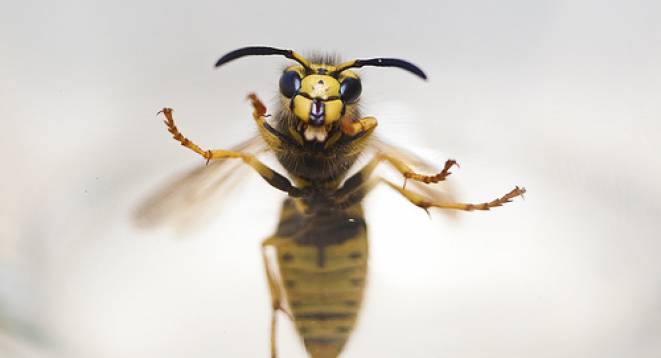How bees and trees can scale social innovation

Social incubators and investment in social ventures are great ways to get new innovations off the ground say researchers at the Clore Social Leadership Programme.
But a new report "When Bees Meet Trees" argues that if we're really going to scale social innovation small and large organisations must find ways to link up.
Is social innovation really working?
Short-listed candidates will be lining up for interviews with the Cabinet Office this month, hoping for the chance of funding to become social incubators. So it seems a good time to reflect upon the way in which we nurture and grow social innovation in the UK.
Most social incubators – investment programmes designed to nurture ventures with social goals – focus on individual entrepreneurs, enterprises, and innovations. But, the innovators and entrepreneurs doing the incubating, who are great at getting ideas off the ground, aren’t always the best people to get them to scale.
Half of all social enterprises introduce new products and services, which is a good indication of innovation. Yet less than 10% of these reach turnovers of more than £5m, and most work at a local level, which brings home the reality that scale is a sticking point for social innovation.
Many of the social problems we face are described as “wicked problems”, they are enduring and complex. Simply investing in individual organisations or entrepreneurs is unlikely to be enough. Social innovation at scale requires a system wide approach, influencing policy, changing attitudes and behaviours.
The recent report “When Bees Meet Trees”, argues that what has been critically missing is a focus on the untapped power and potential of collaborations with large established charities, housing associations and NGOs in getting innovations to scale.
Collaborations between social innovators and large organisation have been compared to an alliance between bees and trees. “Bees” are social innovators, entrepreneurs and small ventures that are creative and fast moving. “Trees” are larger organisations and government, often weak on creativity but strong on networks, delivery, influence and reach.
Together they have the ingredients to achieve social change at scale and have a better chance of unravelling knotty and complex issues that involve multiple interventions.
However, we found experiences of trying to connect “bees and trees” have proven difficult.
Barriers included different attitudes to risk, speed of decision-making, insularity, suspicion of working practices on both sides, “not invented here” syndrome. Many leaders of large social organisations are currently ignored or disconnected from the world of social innovation.
In fact some believe they are already hard-wired for social innovation and do not need outside connections. We would argue that they could have a greater social impact by supporting the innovations of others, achieving both mission and business goals.
However, we did find inspiring examples that included:
Long-standing charity HACT has reinvented itself as what we call a “social innovation broker”. HACT identifies, tests and shares promising innovations from different sectors, such as Community Insight, that can help many housing associations improve their services and quality of life for tenants they serve.
Children’s charity ARK has supported and incubated many education start-ups and helped get them to scale. These includie Teach First, Future Leaders and Teaching Leaders. They have supported social entrepreneur Sharath Jeevan. His charity STIR supports teachers in schools across India to share great ideas that work in the classroom with other schools around the country. STIR partners with state governments and low-income private schools to enable these micro-innovations to be adopted quickly and effectively.
So, what can we actually do to bring together the bees and the trees to scale social innovation?
Get involved in social incubators: Commercial tech-company Telefonica/WAYRA has set-up a social-tech incubator with UnLtd, investing, advising and supporting new ventures – leading to potential joint-ventures with the best.
Large charities and housing associations could follow suit to find innovations that meet their social/business objectives.
The diagram below outlines points at which large social sector organisations could be involved in social incubator programmes:

Bees and trees relationship advice: 5 quick tips
Meet up for some bonding time:
Social innovation is a contact sport, and for ideas and opportunities to flourish “bees and trees” need to meet and build trust and understanding, often low-commitment, low-risk. From drinks-nights, lunches, to meet-the-buyer sessions, hack-days, open competitions, market-places.
Pick a hat:
Large charities, housing associations and NGOs can play a variety of roles in supporting innovation – choose the one that best fits – from investor to broker to what we call “institutional entrepreneur”.
Find your best match:
Our research identifies 3 types of “bee” and 3 types of “tree”. We consider which types are likely to collaborate most successfully. Knowing your organization and what you are looking for in a partner, attitude to risk and ownership is essential to saving time and avoiding tears.
It's not all about the money:
Charities, housing associations and NGOS should look at their resources in the widest sense to support innovation get to scale – brand, networks, operational delivery infrastructure, connections, office space.
Think about the bigger picture:
Big Lottery’s Realising Ambition programme is a good example of bringing charities, housing associations and NGOS together under one programme for a collective purpose, to think system-wide and going beyond the brand. How can you support social innovation? Could you share investment pots with other organisations...?
You can read the full report here. If you are a large charity or housing association and want to connect with social innovators come along to an introductory event, kindly supported by the Big Venture Challenge, on the evening of 21st November at Hub Kings Cross. For details contact ruthbmarvel@gmail.com Further events may be planned - for information contact:owenjarvismail@gmail.com
